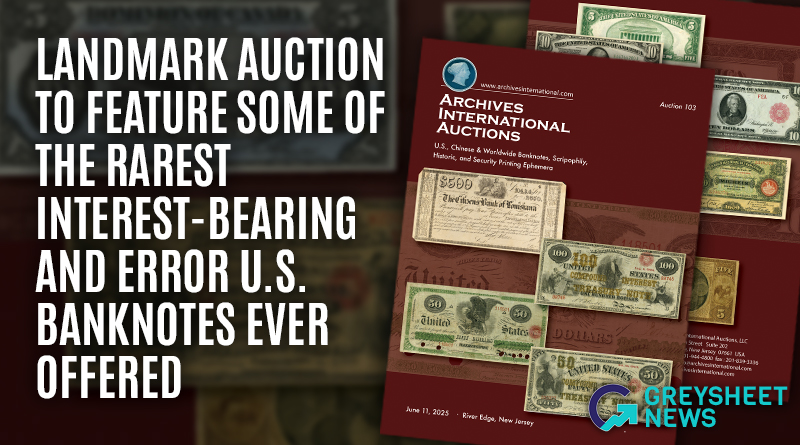Bluesheet: TAKING ADVANTAGE OF THE BLUEGREY SPREAD TO MAKE MONEY IN THE CERTIFIED MARKET, PART 3
THE FINAL INSTALLMENT OF A MULTI-PART SERIES ON BENEFITING FROM THE PRICING IMPERFECTIONS OF THE RARE COIN MARKET
This article is the third in a series where we present ideas for you as numismatic professional, advanced collector, and/or investor to utilize the CDN sheets to your advantage in this challenging market.
In our final installment of our series of articles looking at the Bluesheet/Greysheet spread we will analyze perhaps the most widely collected series: Morgan dollars. Hundreds of thousands of these coins have been certified, and this large sample size provides ample data to look at. Add to this that the pricing of Morgan dollars is misunderstood (or misinterpreted, if you will) in this very dynamic market.
There are a handful of famous conditionally scarce dates that have always had large spreads between grades and even within a given grade, such as the 1884-S, 1892-S, and 1896-O and much has already been written on these coins. We’ll use this article to identify some dates and grades that may not be as obvious.
Let’s start with the 1880-CC in MS66, an available coin with over 1,400 graded combined. The Greysheet price on this coin is $2,000 and the Bluesheet for both PCGS and NGC is $1,300. There have already been twelve sold at auction in 2016 and the prices are a perfect example of today’s market: a high price of $2,233.50 to a low of $1,292.50. One would automatically assume the most expensive examples were CAC stickered, but of the three highest, only one of them was CAC. So how does a buyer or seller determine where the coin they are looking at/selling fall in this range? There are a few options: the coin can be submitted to CAC, one can visually inspect previously sold examples, and the opinion of an expert may be sought out. If one is a collector or investor looking to buy and they desire a premium specimen, it is reasonable to expect to pay $2,000 or more. However, working public auctions or dealer inventories may yield a solid quality coin for less, in the $1,600 to $1,900 range. The key is that the buyer understands why the price realized of a given Morgan dollar is what it is. This may sound obvious, but often users become fixated on the price of the Greysheet bid while ignoring the Bluesheet price, not realizing the coin they possess may not be of Greysheet quality.

Table 3 shows the Blue/Grey spread of other select dates and grades of Morgan dollars, and as one can see the average percentage difference between the two prices are over 30%.
This emphasizes the opportunity present within this vast series, but also the pitfalls.
* CoinPlex will be renamed CDN Exchange on July 13, with an all-new web site at www.cdnexchange.com. Membership starts at $100 per month with first month free for new subscribers.

Download the Greysheet app for access to pricing, news, events and your subscriptions.
Subscribe Now.

Subscribe to The Greysheet for the industry's most respected pricing and to read more articles just like this.
Source: CDN Publishing
Related Stories (powered by Greysheet News)
View all news
This sale presents an unprecedented opportunity for collectors to acquire museum-worthy examples from the nation's most pivotal monetary periods.

This relatively strong performance falls right between the prior two editions of this sale.

Greysheet Market Reports are the best way to stay current way on rare coin and paper money market info.








Please sign in or register to leave a comment.
Your identity will be restricted to first name/last initial, or a user ID you create.
Comment
Comments